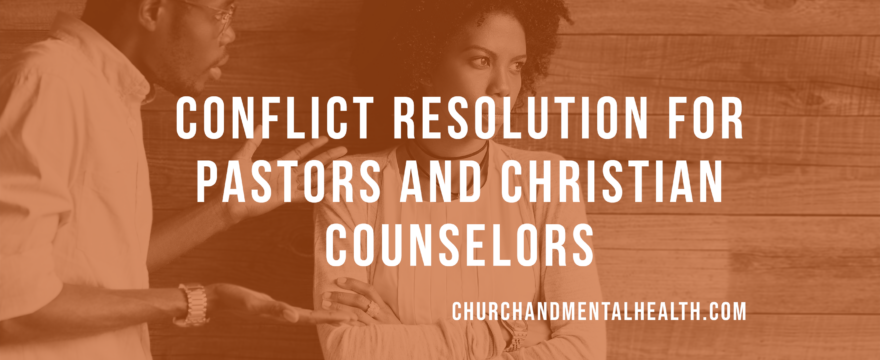Conflict is inevitable in ministry. Whether you’re working with church members, counseling individuals, or navigating team dynamics, understanding how to resolve disputes in a Christ-centered way is vital. Here are essential conflict resolution skills, grounded in biblical wisdom, that can guide pastors and Christian counselors toward fostering peace and unity.
1. Cultivate Patience
When tensions rise, patience is your most powerful tool. Proverbs 15:1 reminds us, “A gentle answer turns away wrath, but a harsh word stirs up anger.” Taking time to pause, reflect, and create space for others’ viewpoints can de-escalate conflict. It’s often more practical to listen than to insist on being heard. Patience fosters empathy, strengthens relationships, and paves the way for meaningful resolutions rooted in understanding and respect.
2. Search Your Motives
Before addressing conflict, it’s essential to examine your own heart. James 1:5 says, “If any of you lacks wisdom, you should ask God, who gives generously to all without finding fault.” Take time to reflect on whether biases, past experiences, or personal fears influence your response. Are you driven by a desire for resolution or by ego and pride? A clear understanding of your motives lets you respond thoughtfully and avoid hasty reactions.
3. Practice Humility
Humility is not a sign of weakness; it’s a strength that brings people together. In today’s polarized world, being open to the possibility that you don’t have all the answers can be revolutionary. Micah 6:8b encourages us “to act justly and to love mercy and to walk humbly with our God.” Humility helps bridge divides and fosters relationships built on mutual respect and love. As you navigate conflict, remember that humility is a gateway to deeper understanding and a healthier community.
4. Listen Attentively
Listening is a powerful tool for resolving conflicts. James 1:19 advises, “My dear brothers and sisters, take note of this: Everyone should be quick to listen, slow to speak, and slow to become angry.” In every conversation, especially those involving tension, being fully present and attentive can make all the difference. Practice active listening by repeating or summarizing what the other person has said. This not only ensures clarity but also demonstrates that their perspective is valued. Attentive listening breaks down barriers and fosters trust.
5. Share Your Perspective with Grace
When it’s your turn to speak, do so with honesty and love. Ephesians 4:15 reminds us, “Speaking the truth in love, we will grow to become in every respect the mature body of him who is the head, that is, Christ.” Express your feelings, needs, and concerns clearly, directly, and compassionately. Aim for a balance between being assertive and respectful, ensuring that your tone and words promote understanding rather than division. In this way, you model Christ-like communication that strengthens unity.
6. Manage Insensitive Remarks
Occasionally, you may encounter hurtful or insensitive remarks in moments of conflict. While these comments can sting, approaching them gracefully is important. Establish emotional boundaries to protect your well-being. Sometimes, ignoring an unkind word is the best response. However, when addressing a hurtful comment becomes necessary, do so in a firm and respectful way. Above all, remain authentic, prioritizing your emotional and spiritual health as you navigate these difficult moments.
7. Seek Unity
In every church or group, there will be diverse opinions. Yet unity, not uniformity, is what the body of Christ requires. 1 Corinthians 12:25-26 reminds us that “there should be no division in the body, but that its parts should have equal concern for each other.” Disagreements are inevitable, but fostering an environment where every person feels heard and valued is essential. By focusing on shared values and the Church’s larger mission, we can move toward harmony, even in conflict.
8. Embrace Self-Compassion
Finally, it’s crucial to extend grace not only to others but also to yourself. Conflict can be emotionally taxing, and becoming your own harshest critic is easy. Psalm 103:13-14 reminds us of God’s compassion: “As a father has compassion on his children, so the Lord has compassion on those who fear him; for he knows how we are formed, he remembers that we are dust.” Allow yourself the space to feel hurt or frustrated, but don’t dwell in self-blame. By practicing self-compassion, you model the grace of Christ and create an atmosphere where healthy, transformative conversations can take place.
Conflict resolution is an integral part of ministry and counseling. By cultivating patience, practicing humility, listening attentively, and sharing gracefully, pastors and Christian counselors can build bridges of understanding and strengthen community bonds. Ultimately, seeking unity and embracing self-compassion reflects the heart of Christ and fosters peace in every relationship. Let us follow His example in resolving conflicts with wisdom and love.
